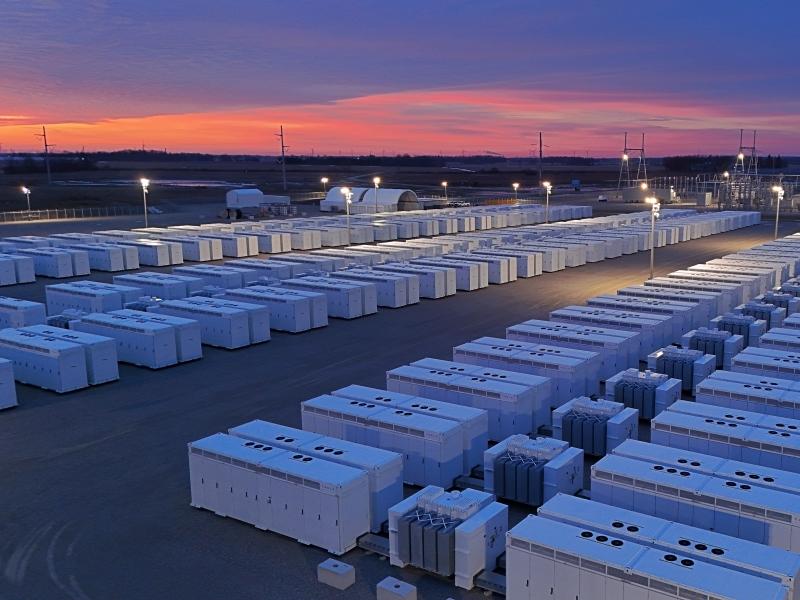
Surging interest in hydrogen as a clean fuel is prompting Squamish, B.C.-based Quantum Technology Corporation to pivot from a company that largely concentrated on helium toward commercial equipment for the hydrogen supply chain.
Founded in 1981 as a spinoff from Simon Fraser University, Quantum designs and manufactures helium and hydrogen gas purifiers and liquefiers. Its equipment transforms both elements from a gas to a liquid state. In the case of hydrogen, it enables long-distance transportation of liquid hydrogen fuel.
Calvin Winter, the president of Quantum, told Sustainable Biz Canada in an interview the technology his company provides is key to making hydrogen fuel possible for sectors like aircraft.
“That transition is absolutely required for some mobility applications, specifically aircraft. There’s no way you can run an aircraft for any length of time on hydrogen gas.”
With more attention placed on hydrogen fuel to decarbonize difficult-to-abate greenhouse gas emissions, Winter sees a role for his company in the low-carbon economy transition.
From helium to hydrogen
Quantum stems from Winter’s PhD and post-doctoral research in cryogenics. The first opportunities for the company came from supplying university laboratories and telescope projects with helium liquefiers and production equipment because of the worldwide shortage of liquid helium. Quantum’s work branched off into building equipment that produces hydrogen from natural gas and its first hydrogen liquefiers for small experiments.
In 2014, Winter's business partner Ovi Marin joined the company, redirecting its focus to industrial applications. Quantum is unique for providing both hydrogen and helium purifiers and liquefiers at an industrial and production scale, Winter said.
Gas purification is the first step to ensure the elements will be of high quality. The purified gas is liquified by mechanically removing the energy from hydrogen and helium. Converting hydrogen gas into a liquid is necessary for transportation if the receiver is not directly on a hydrogen pipeline, Winter said.
“As soon as you have to transport hydrogen at a larger distance, then the cost of transporting the gas, of trucking the container, is too large . . . you need to use liquid to be able to transport the gas.”
Its hydrogen purifiers and liquefiers can process up to 15 tons per day, according Quantum's website.
The company is able to produce a liquefier and purifier every month, and has sold its products to over 600 clients in 50 countries. Clients include major laboratories in the U.S. and Paris-based Air Liquide, a global industrial gas company.
Its headquarters in Squamish has 50 employees, with another 50 in France as part of its subsidiary, and over 10 in North Carolina.
Backing the hydrogen transition
The popularity of hydrogen fuel is what led Quantum to shift into a different direction. Winter said there is more interest in the company’s hydrogen-related equipment — taking up a 40 per cent share of its business compared to 10 per cent three to four years ago.
Winter, who drives a hydrogen-powered car, has seen the industry evolve and morph dramatically over the decades. When Quantum started, hydrogen was used to split petroleum to form gasoline or plastics, with no interest in it as a clean fuel. Then companies like Vancouver-based Ballard Power Systems drove the industry toward the hydrogen full cell sector and made Vancouver a “world centre for all kinds of hydrogen fuel cell research,” he said.
Quantum is working with parties like Victoria International Airport to develop a large-scale renewable hydrogen fuel centre equipped with a hydrogen electrolyzer, purifier, compressor and liquefier.
The company’s focus on hydrogen fuel garnered it a $2.5-million investment from the Canadian government in February. The funds will help Quantum purchase more equipment like gas analyzers for its purification technology, and to develop projects related to hydrogen refuelling for trucks. It will support the hiring of 20 more staff members as well.
Quantum has grown largely by pulling itself by its bootstraps, Winter quipped, saying it has never raised external equity. But because the company is at an inflection point for its transition, it is seeking investors to expand rapidly into the hydrogen space.
“We expect the company to grow to above $100 million in sales over the course of the next couple of years. The capital investment that involves is a fraction of that, it’s in the tens of millions.”
What the hydrogen industry needs to grow
For hydrogen fuel to become economically viable, Winter says the sector needs to overcome the obstacle of its low cost-effectiveness. An “ad valorem subsidy is the essential ingredient to make this long-term transition happen,” he said.
“I feel that government needs to continue to take a leadership role and provide a percentage ad valorem discount on green fuels, renewable fuels until such time as they really take hold. And if we don’t do that, it’s very hard for industrialists to put in the capital,” Winter continued.
With enough government subsidies, he expects the price of green hydrogen (produced from clean energy) will decrease to the point where it can be used in applications such as trucking, shipping, aviation, steelmaking, or even to power the generators used on film sets.
“Everybody is talking hydrogen, a lot of people are doing hydrogen, and we just need to continue down that path.”










